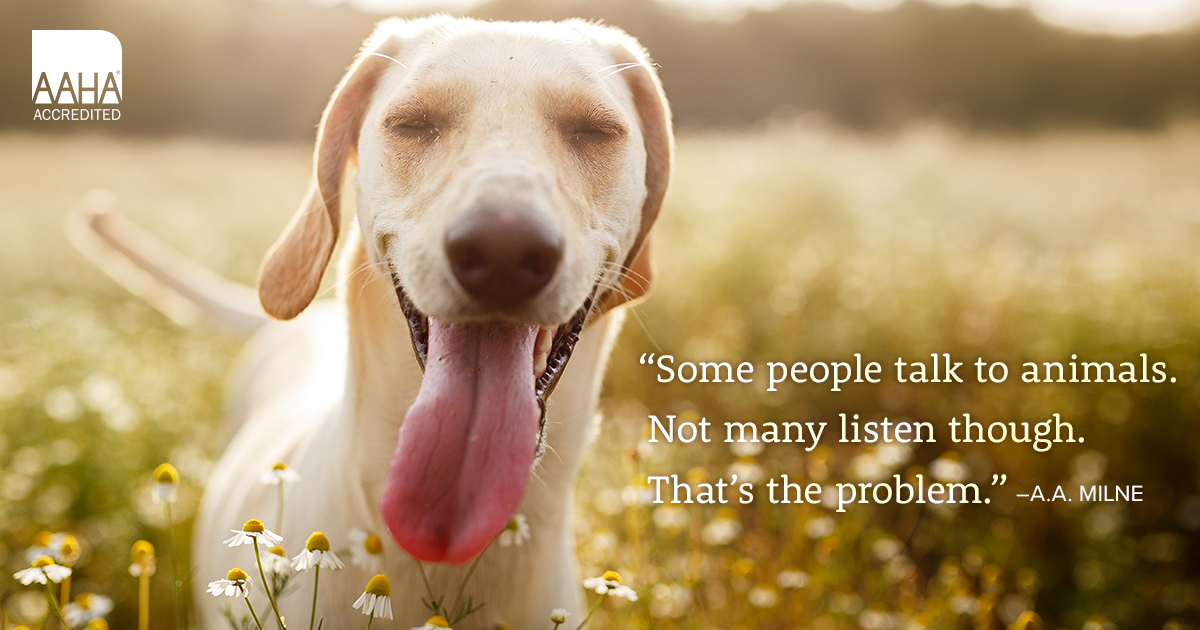
Pet Health Education Handouts
-
Turning around before bedtime has its origin mostly in evolutionary history where dog ancestors were practicing these habits for health or protection. These innate habits remain in their genetic code to this day, but if your dog is seeming to be doing it excessively, it could be a sign of underlying medical problems, such as arthritis or neurological disorders. Contact your veterinarian if your dog appears to have difficulty settling down.
-
Regular preventive health care for your cat can increase the length and quality of her life. Healthcare guidelines are established and kept up to date using the most recent evidence-based recommendations including the recommendation that all cats receive a complete veterinary examination at least once a year or more frequently, depending on their individual needs and health concerns.
-
Regular preventive health care for your dog can increase the length and quality of her life. Health care guidelines are established and kept up to date using the most recent evidence-based recommendations including the recommendation that all dogs receive a complete veterinary examination at least once a year or more frequently, depending on their individual needs and health concerns.
-
Punishment is not recommended as a training or behavior management tool for pets. It can cause fear, frustration, and even aggression. Using punishment can seriously damage a pet’s relationship with people. Training should focus on teaching desirable behaviors rather than on simply stopping undesirable ones. When pets exhibit undesirable behaviors, it is important to determine and address the underlying reason for the behavior.
-
During the spring and summer, it is not unusual to encounter a wild baby bird on the ground. Often, people respond by taking the little "orphan" home before they figure out what to do with it. This handout provides important information should you encounter a wild baby bird.
-
The purpose of clipping a bird's wings is not to prevent flight completely, but to ensure the bird is unable to achieve or sustain upward flight, preventing escape, unwanted roaming, and exposure to dangerous situations. Typically, the primary feathers are trimmed about halfway between the base and the tip of the feather. The secondary feathers should not be clipped, and no feathers should be clipped shorter than midway from base to tip. Newly growing pin or blood feathers (that retain blood in the shaft until the feather matures) will bleed quite profusely if accidentally cut.
-
Pets and people need some zinc in their diets. However, too much zinc can cause serious health problems. The amount of zinc required to cause poisoning depends upon the pet’s size, the form of zinc ingested, and how much was ingested. Some forms of zinc are more readily absorbed than others.

